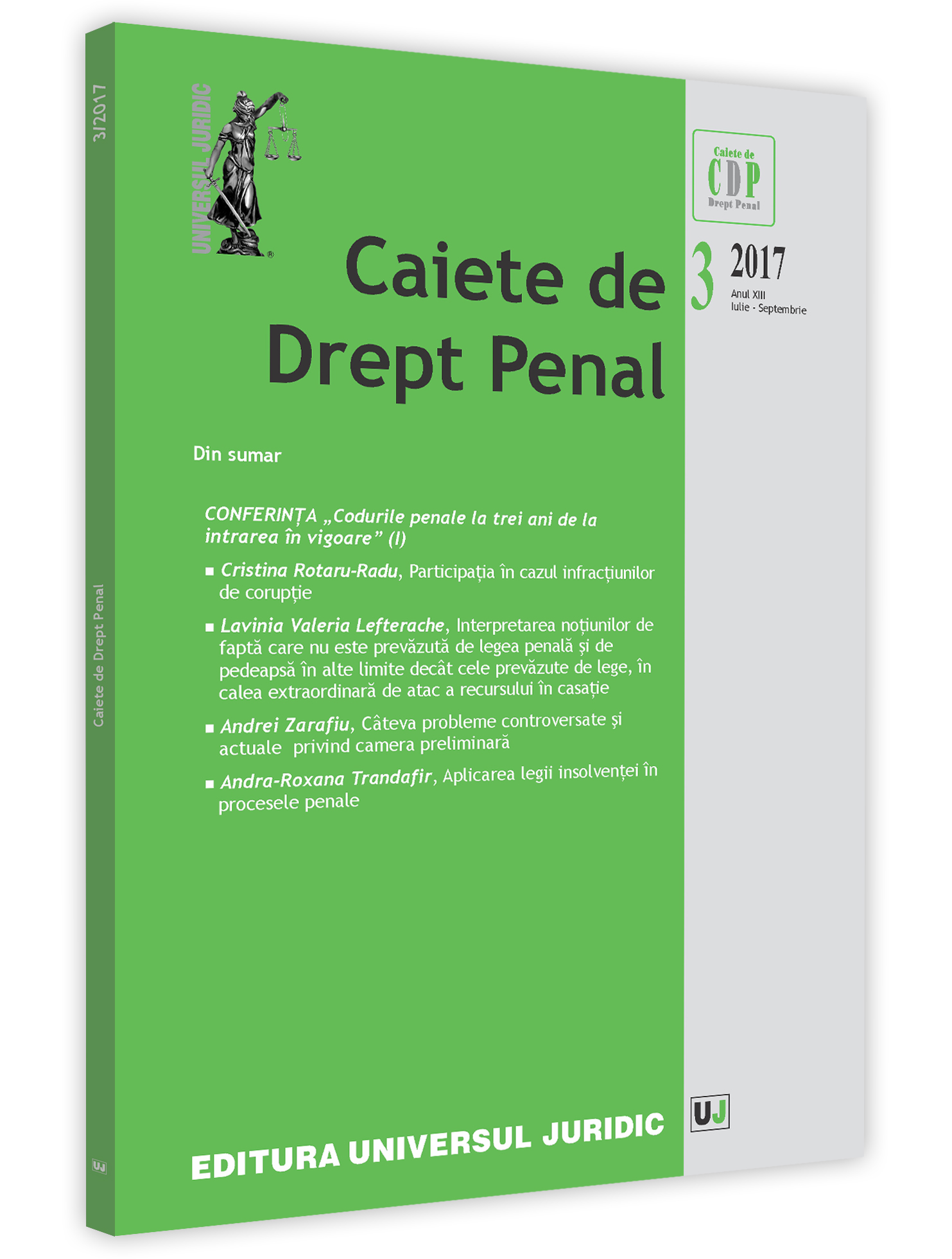Inaplicabilitatea principiului nulla poena sine culpa în dreptul penal european. Tendinţa spre răspunderea penală obiectivă
The inapplicability of the nulla poena sine culpa principle in the EU criminal law. The tendency towards strict liability endorsement
Author(s): Alexandru MatacheSubject(s): Law, Constitution, Jurisprudence
Published by: Universul Juridic
Keywords: the principle of legality; culpability; criminal offences; a ‘strict liability Euro-crime’ dilemma; mens rea of Euro-crimes; human dignity; measures of forfeit; ignorance of national provisions;
Summary/Abstract: The path to effective recognition of fundamental principles of criminal law and criminal procedural law followed, at least with the signing of the Maastricht Treaty, an upward trend in the EU’s space.Although the principle of legality of criminal offenses and penalties is widely recognized as one of the basis for the intervention mechanism of the European institutions in criminal matters, its components do not enjoy, until now, of a steady and consistent application in the Court of Justice’s jurisprudence. This statement is also available, among others, when analysing the principle of culpability. Even if important documents at the EU level, such as Corpus Juris or Manifesto on European criminal policy,have been proclaiming, over time, the need to meet the element of guilt in the process of applying criminal law sanctions, the European Committee and case law tend to sacrifice this desideratum each time when a „general interest”recquires it or when it is appreciated that the compliance of the principle of proportionality is achieved. The exposure of certain models of strict liability can be most easily identified in cases in which the European Union declares itself a guarantor of international humanitarian law and in cases in which the economic and financial interest of the EU are violated. This standing culminates with the encouragement of the Member States to ignore the legal status of their national provisions regarding fundamental elements of their national criminal law each time the European interests are harmed. As far as this issue is concerned, the author tries to submit to the audience a brief and chronological analysis of the nulla poena sine culpa principle’s valencies in the EU’s juridical area and to determine if this principle is a fundamental one for the EU’s criminal features or consists in a simple slogan that masks a growing tendency to promote different models of strict liability. Also, an important accent is put on the fluctuating case law of the Court of Justice in this area, with a constructive warning about its consequences attached.
Journal: Caiete de drept penal
- Issue Year: 2017
- Issue No: 03
- Page Range: 106-122
- Page Count: 17
- Language: Romanian
- Content File-PDF

